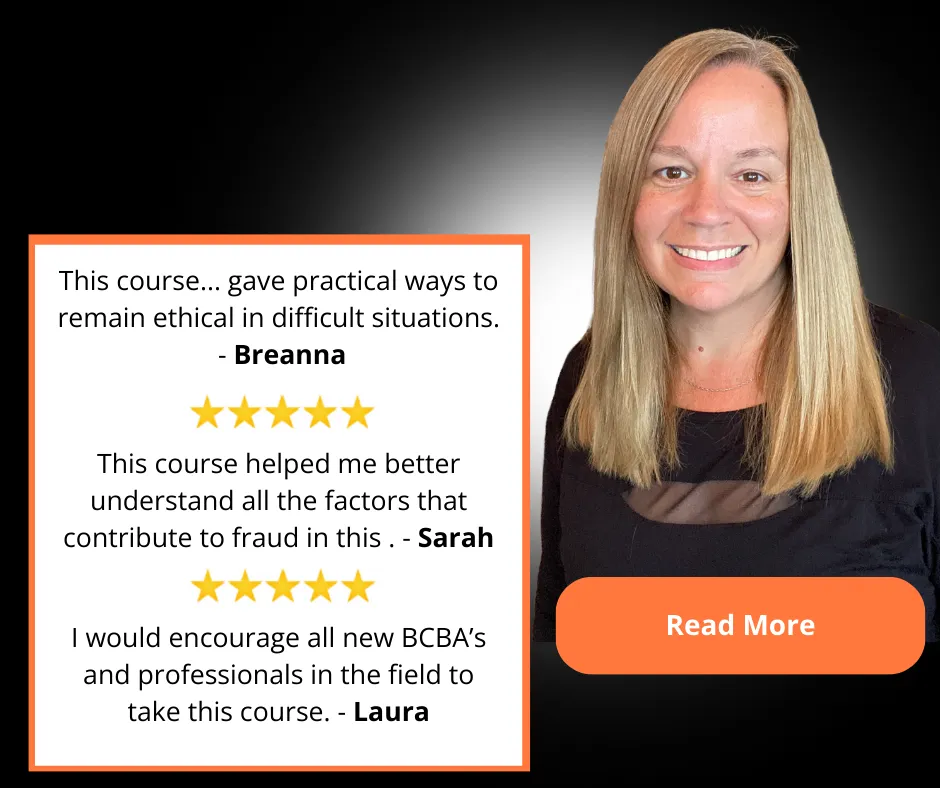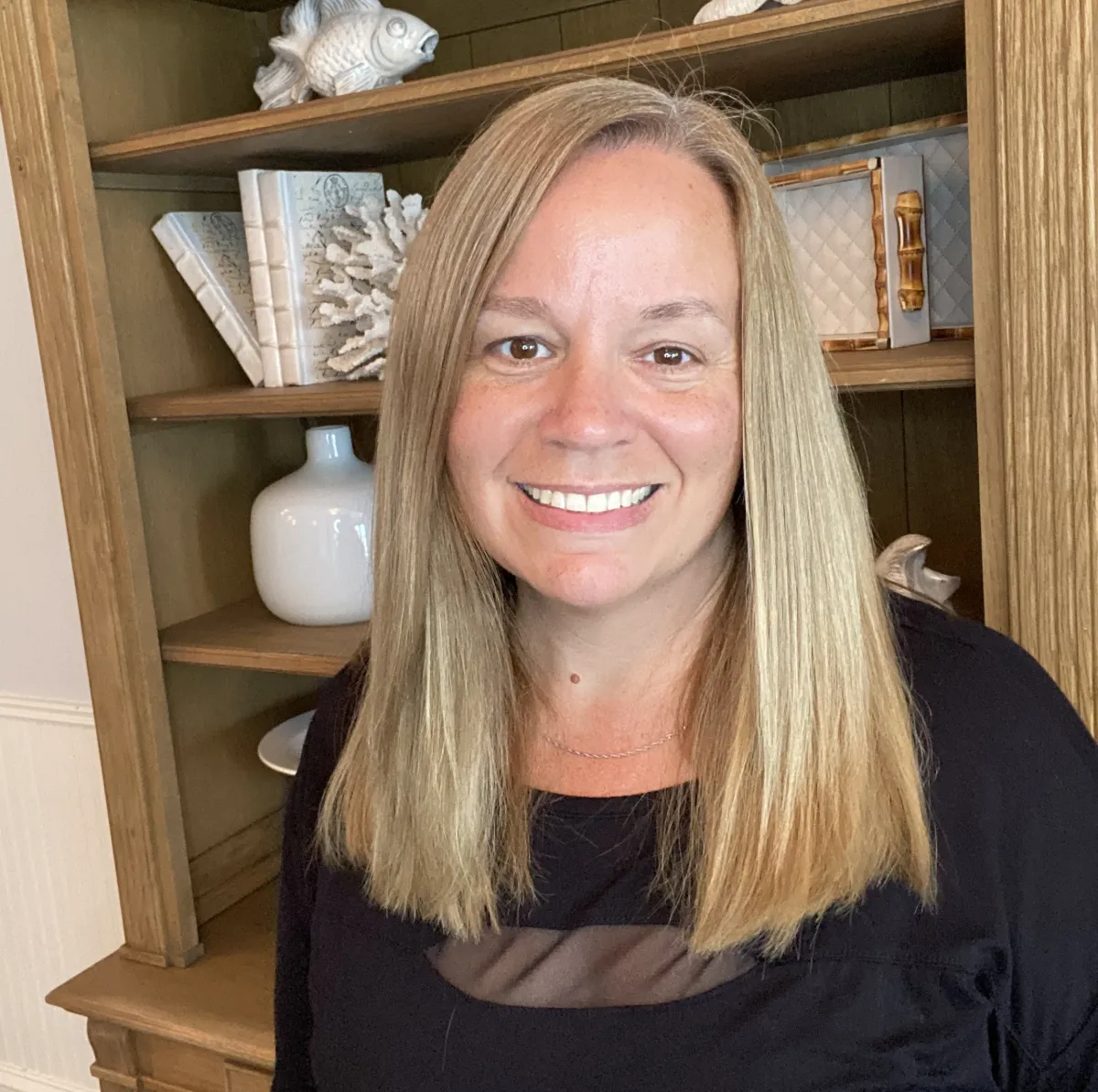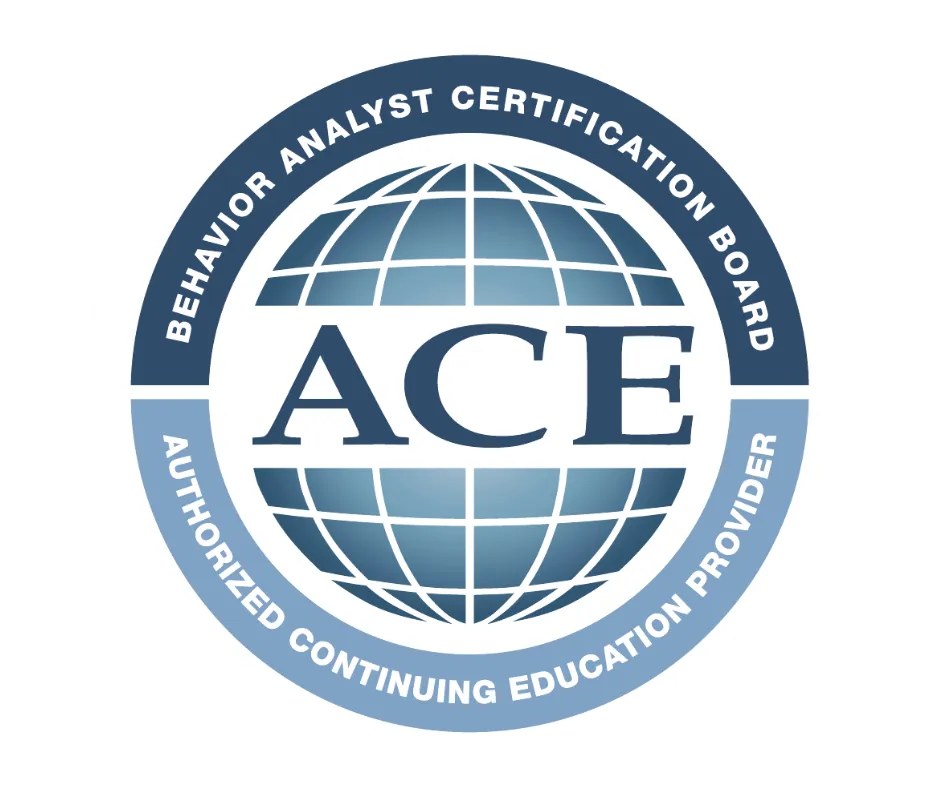THE SALE HAS ENDED...BUT YOU CAN STILL GET A GREAT PRICE!
1.5 Ethics Type CEUs
The Moral Tightrope: Why Good People Sometimes Choose the Wrong Path
Are you at risk of fraudulent billing? You might be surprised!

Ever catch yourself thinking, "Is this really how it's supposed to work?"
You entered this field to make a difference. But pressure from employers, confusing billing rules, and financial strain can blur the lines. This course shows you how to stay grounded—and act with integrity even when it's hard.
✔ Understand how good people end up making unethical decisions
✔Learn the difference between misunderstandings, unethical behavior, and fraud
✔ Recognize pressures and patterns that increase risk of ethical drift
✔ Build a practical framework for ethical decision-making
✔ Gain clarity on how to protect yourself and your clients
✔ Earn 1.5 Ethics CEUs while doing work that matters
1.5 Ethics CEUs for only $30!

What you will learn:

Fraud, Ethics & Billing: Know the Difference
What separates honest mistakes from unethical behavior or outright fraud? Learn how intent and impact matter.

The Behavioral Science of Unethical Choices
Explore why even well-intentioned BCBAs can drift from ethical practice under certain conditions.

Case Studies from the Real World
Dive into real fraud cases in ABA—and discover the patterns behind them.

Understanding the Fraud Triangle (and Beyond)
Learn key behavioral and economic models that explain how fraud happens and what you can do to stop it.

The 5 Personal Strategies to Stay Ethical
Develop your own protective practices to stay true to your values, no matter where you work.

Strategies for Business Owners
Create ethical organizational cultures and avoid policies that unintentionally increase fraud risk.
What Is the Fraud Triangle (and Why Should You Care)?

The Fraud Triangle is a behavioral model showing the 3 key conditions that make unethical behavior more likely:
✔ Pressure (e.g. billable hours, low pay, family needs)
✔ Opportunity (e.g. loose oversight, flexible billing systems)
✔ Rationalization (e.g. "Everyone does it" or "It's just a few minutes")
Sound familiar?
Understanding this model (and its updated versions like the Fraud Diamond) helps you:
✔ Anticipate ethical drift
✔ Reframe ethical dilemmas
✔ Advocate for safer systems in your workplace

Enroll Today and Get These Exclusive Bonuses:
(Limited-Time Offer – Don’t Miss Out!)
Total Value: $109
Your Price Today: Only $30
💡What You’ll Get When You Enroll:
The Moral Tightrope: Why Good People Sometimes Choose the Wrong Path (1.5 Ethics CEUs) $30
Learn the behavioral science behind ethical drift and how to protect your values in the field.
The Moral Tightrope Workbook — $10
Apply what you learn with guided prompts and real-world reflection.
Avoiding the Slippery Slope Journal — $10
Daily prompts and space for ethical reflection—because awareness is your best defense.
Finding Your Purpose Course (normally only available to Dojo members) — $19
Reconnect with your "why" and reimagine your path in the field.
Finding an Ethical Company Workbook — $10
Navigate job decisions with confidence using this self-guided reflection tool.
Finding a Mentor Workbook — $10
Get support and structure for finding a mentor who shares your values.
Should I Start a Side Hustle Workbook — $10
Explore income diversification strategies that align with your ethics and goals.
See what people are saying about The Moral Tightrope

This course was educational, enlightening, relatable, and, most importantly, functional in that it gave practical ways to remain ethical in difficult situations. I highly recommend this course.
Breanna
This course provides the truth about what we all suspect is happening in our field and provides information on possible controlling variables. Thanks for disseminating this information.
Susan
A very practical look regarding insurance fraud and compliance. I would encourage all new BCBA’s and professionals in the field to take this course.
Laura
This course was helpful to reflect on billing practices.
Paige
The information in this course is pertinent for all professionals in Applied Behavior Analysis.
Leslie
This course was very informative and helped me better understand all the factors that contribute to fraud in this field.
Sarah
What makes this course different?
🔹Taught by a BCBA who’s lived through the ethical gray zones
🔹Not just what the Ethics Code says, but why people still break it
🔹Includes practical tools for self-reflection and workplace navigation
🔹Focused on both personal integrity and systemic change
🔹 Based on real stories, real data, and real strategies
Why This Is Critical for BCBAs
The pressure to bill more, supervise less, and "do what you're told" is real—and it's exhausting. If you've ever felt the tension between what your gut says is right and what your employer says is required, you're not alone. This course matters because:
✔ ABA is under growing scrutiny due to unethical billing and systemic abuses—our field's future depends on how we respond
✔ Most unethical decisions aren’t made by unethical people—they're made under pressure, in systems that reward compliance over integrity
✔ You need more than an Ethics Code—you need tools to understand risk, resist pressure, and make values-aligned decisions in the real world
This course gives you those tools, plus strategies you can use immediately to protect your license, your peace of mind, and your clients. It's not just about compliance—it's about sustainability, career satisfaction, and the kind of practitioner you want to be
Ethics CEUs are required—but this one will actually change how you show up.
Meet the Instructor

Amelia Dalphonse, MA, BCBA
Amelia Dalphonse, MA, BCBA, co-founded Master ABA with her twin sister, Dianna Kelly, bringing over 13 years of expertise in Applied Behavior Analysis (ABA). Passionate about prioritizing client needs, Amelia earned a Master’s degree in ABA and became a Board Certified Behavior Analyst (BCBA).
At Master ABA, Amelia and Dianna lead with innovation, emphasizing client-centered care to drive meaningful change. As an ACE provider, they’ve established the institution as a hub for progressive ABA practices, inspiring others to adopt compassionate and ethical approaches.
Through her role at Master ABA, Amelia advocates for advancing the ABA field with empathy and integrity. She stays abreast of the latest research, continuously seeking opportunities for professional growth.
Trusted ACE Instructors Approved through the BACB
Quality Assurance You Can Trust: All of our instructors are certified Authorized Continuing Education (ACE) providers through the Behavior Analyst Certification Board (BACB). This ensures that our CEU courses meet the rigorous standards set by the BACB and qualify for CEU credits towards maintaining your BCBAs’® certifications.

